The Symbol of Division
The Berlin Wall functioned as a symbol of division, highlighting the ideological conflict between capitalism and communism.
I. Democracy vs Communism
The Berlin Wall served as a representaion of the ideological difference betwen the capitislist West Berlin and the Communist East Berlin.
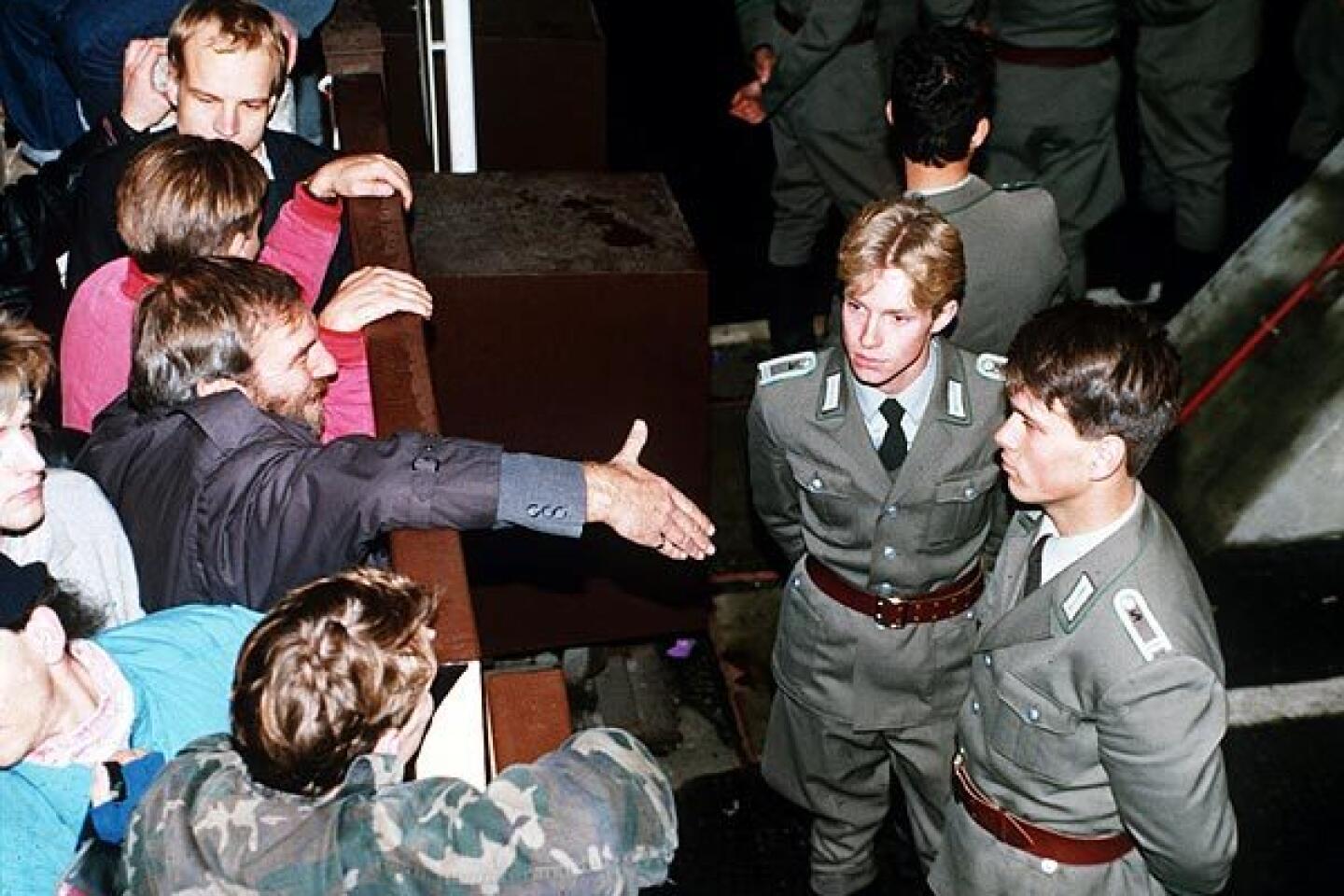
East German guards refusing to shake hand with a West Berlin citizen, courtesy of Los Angeles Times.
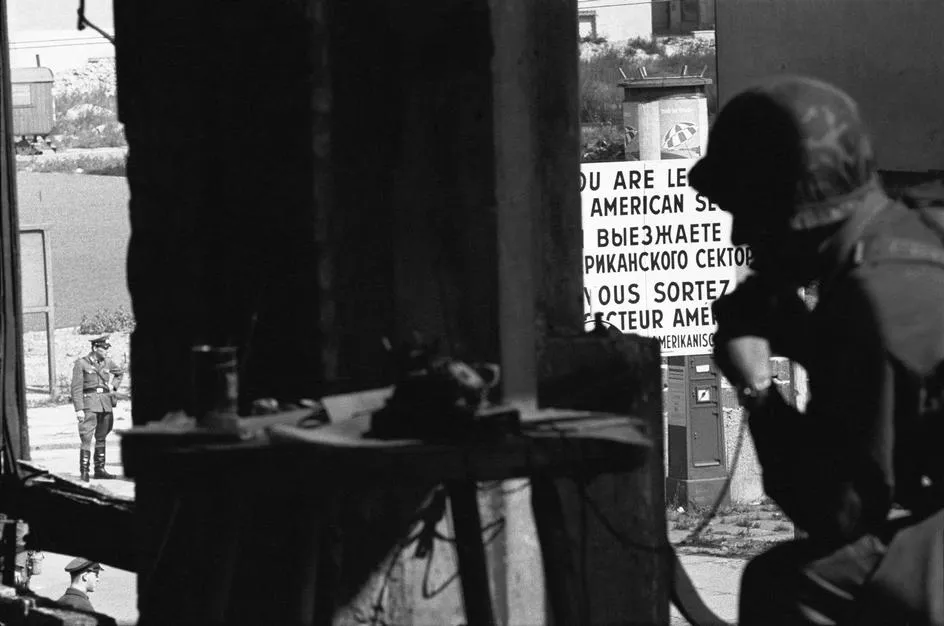
An East German guard being watched by an American soldier at Checkpoint Charlie, an allied border zone in West Berlin, courtesy of The New Yorker.
A Father Figure
On June 26, 1963, President John F. Kennedy expressed support with the people of West Berlin, emphasizing their shared commitment to freedom in the face of communist opression. He declared, "Ich bin ein Berliner," ("I am a Berliner") to symbolize unity and support for the West Berlin citizens. Kennedy highlighted the stark constrast between democracy and totalitarianism, reinforcing the U.S.'s dedication to defending West Berlin citizens.
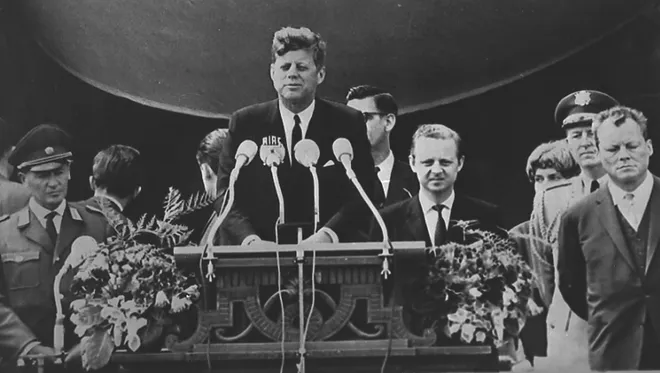
President JFK delivers his speach, "Ich bin ein Berliner," in West Berlin, June 26, 1963, courtesy of USA Today.
II. Leaving the East
The Berlin Wall served as barrier between freedom and corruption.
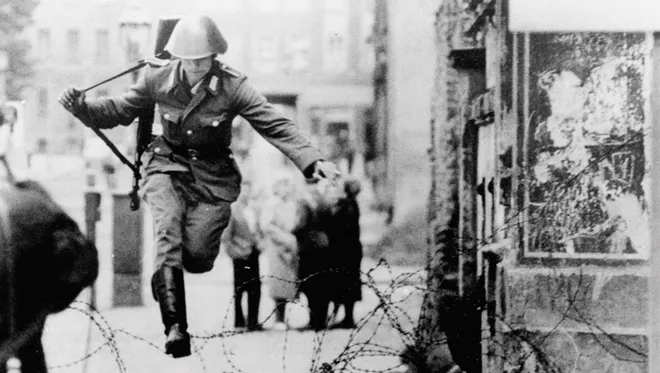
East German soldier Hans Conrad Schumann, leaps over barbed wire barricade into West Berlin, August 15, 1961, Courtesy of USA Today.
"I didn't want to live in a world where I had to obey orders I couldn't believe in. Freedom was worth everything, even my life."
- Wolfgang Engels, former East German Mechanic
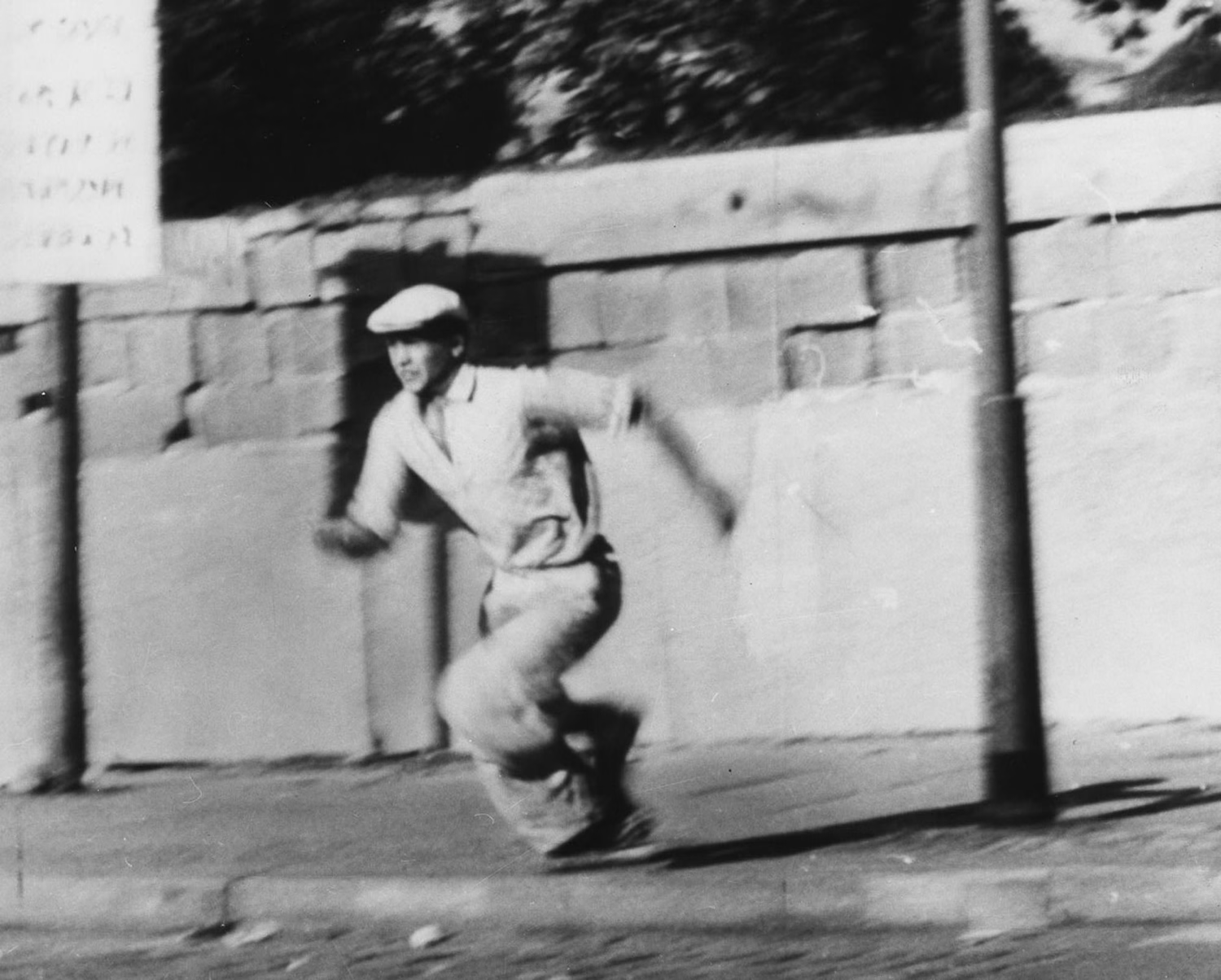
An East German citizens attempting to cross into West Berlin after climbing over the Berlin Wall, October 16, 1961, courtesy of The Atlantic.
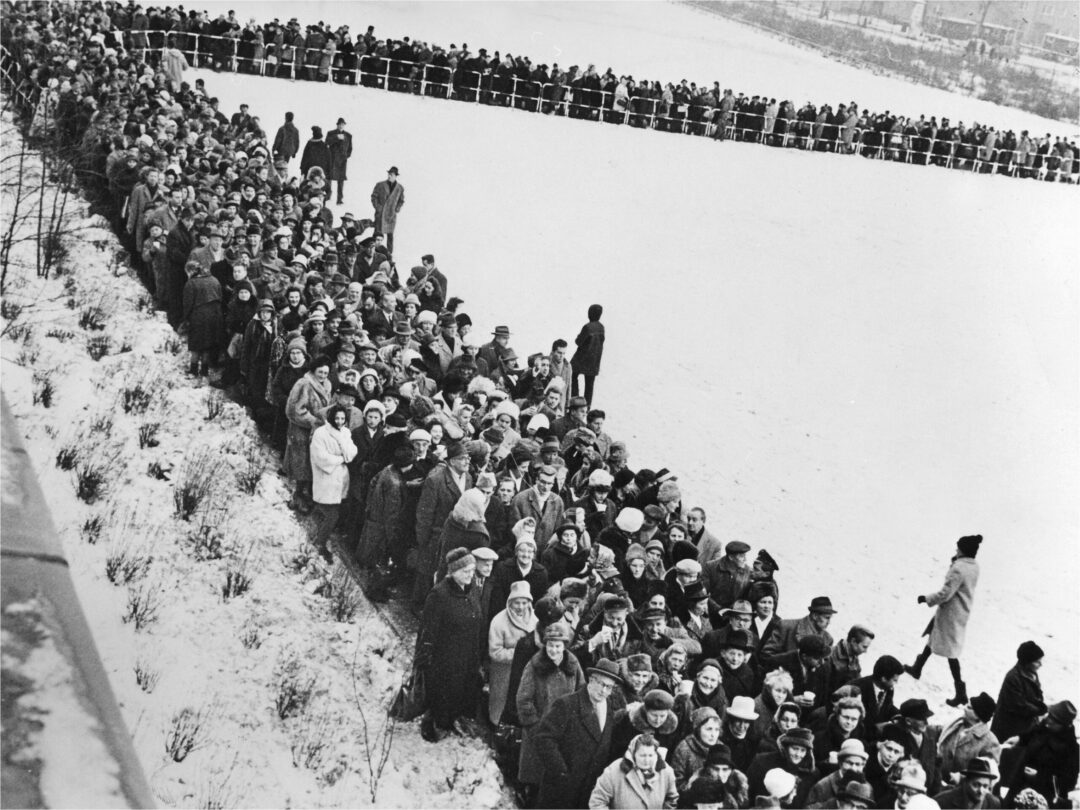
Several hundred East German citizens at a refugee camp in West Berlin, courtesy of The Atlantic.
Next
Thesis
Back